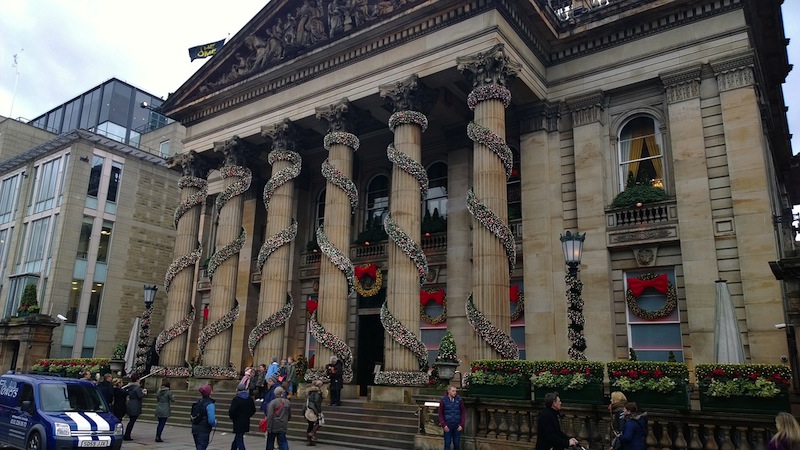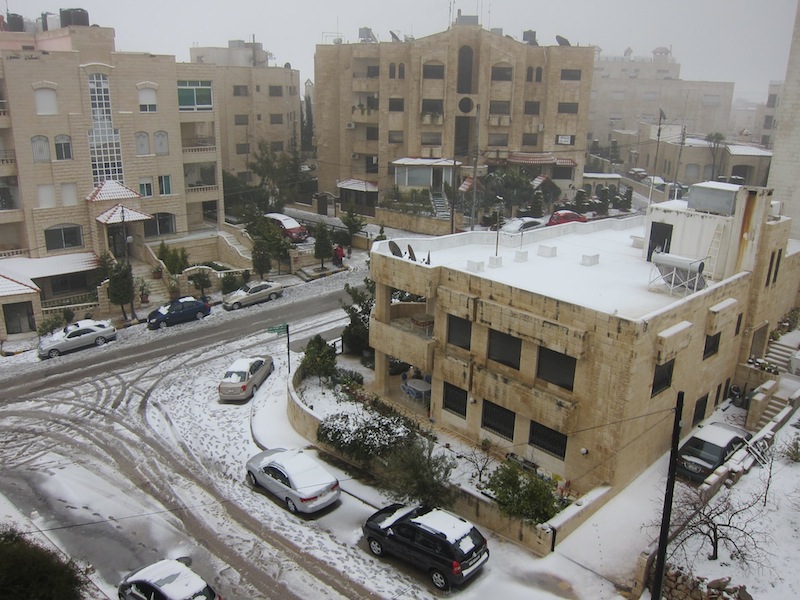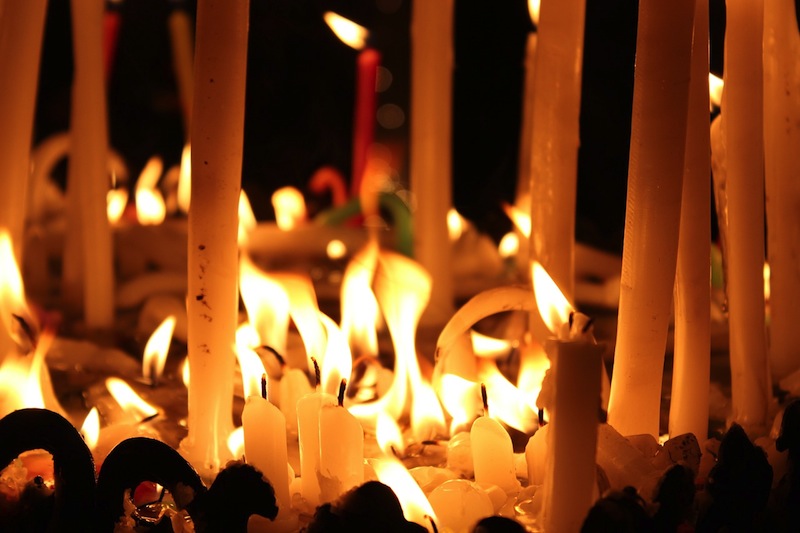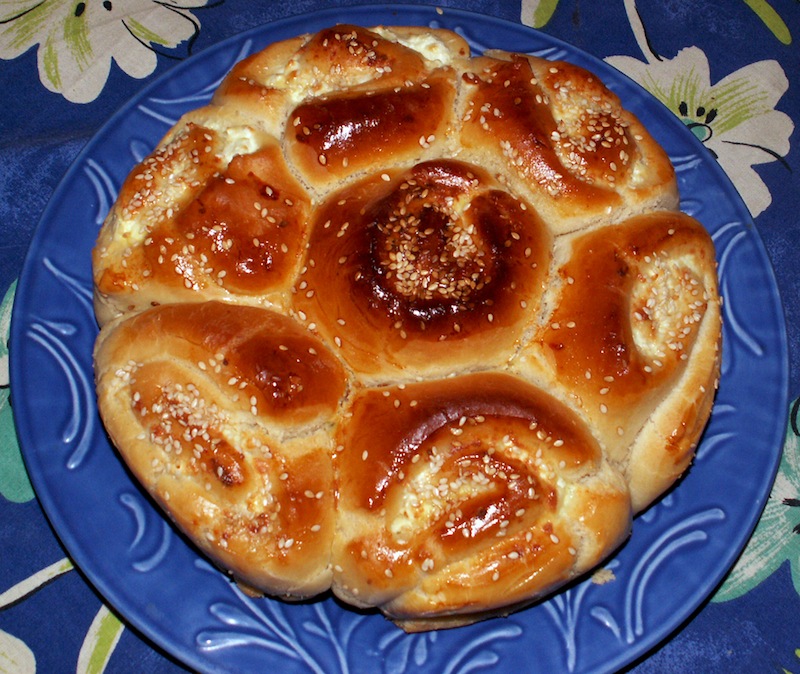
Caroline is Scottish and is studying French in Paris. Here she introduces us to Christmas in Scotland.
In Scotland, the Christmas season officially begins on the 1st of December, when the switching on of the lights happens. Every town and city in Scotland has Christmas decorations, like flags at festival time, hanging above the roads, and a massive Christmas tree. The “light up” is when all these decorations are lit up, as well as the lights on the Christmas tree. It is a big bash in each town, with people out on the street and either the local radio station or councilor there to announce it.
The commercialisation of Christmas usually happens, like in many countries, before this. They start their decorations in about November.
After the official “light up”, many people begin to put up their decorations in their house, including a Christmas tree. Personally, me and my family wait till around the 15th to put our tree up, as we like to get a real tree, and their pines and scent do not last long.
What else marks our lead up to Christmas is: carol singers on the street for charity, Christmas food and the occasional Christmas bazaar. At these bazaars, as well as some shopping centres, appears Father Christmas, who gives presents to the children and they tell him what they want for Christmas.
Which brings us to Christmas Eve. On Christmas Eve, we might do some last minute shopping for gifts with our family; wrap up our presents for others; and do any preparations, for example decorations or cooking.
Many young people go out to the pubs or clubs on Christmas Eve, as it is one of the best nights of the year, right up there with Hogmanay. I don’t tend to go out though, as I think Christmas is a family time, so I spend it with them and then we go to midnight mass at night. Although Christmas has become commercial, it remains quite a religious festival in Scotland, with a lot of people going to church even if they’re not practising Christians.
The final part of Christmas Eve, if you have children in the house, is to leave out milk and cookies for Santa, and, of course, a carrot or two for his reindeer.
In terms of the working side of Christmas , it depends where you work and what you work as. All businesses and most civil servants have Christmas day and Boxing day as statutory holidays. However, those who work in the health services have to work at least some of the day.
Nonetheless, the trade in which it is almost compulsory to work is the hospitality industry for example restaurants and hotels. I, myself, work in a hotel, and although I don’t work Christmas Eve or Christmas, I have to work the whole week before Christmas, Boxing day and Hogmany to get “them off”!
On Christmas day itself, one wakes up as early as possible (especially children) to open their presents. They then just chill out, play games or go to church if they haven’t been the night before.
The cooking commences, perhaps midday aperitifs and nibbles, or travelling to spend the day with your extended family. The Christmas dinner is normally around 4 PM, which is the highlight of the day for most. There is no norm for the starter, but for the main course it must be turkey done in crispy bacon, roast potatoes, brussel sprouts or carrots, parsnips, bread sauce and gravy.
The dessert is Christmas pudding which is drenched in brandy or whisky and lit up. It is served with brandy butter or cream. The final course is either mince pies or Christmas cake, which is a rich fruit cake with marzipan and icing.
In the evening, we might play a game a child received, or charades, just chat, or have a mini-ceilidh or simply watch a film on the TV.
You see the remainder of your extended family somewhere between Christmas and New Year, or indeed, New Year’s Day itself, but never Hogmany, as it is a time to spend with neighbours and old friends.



